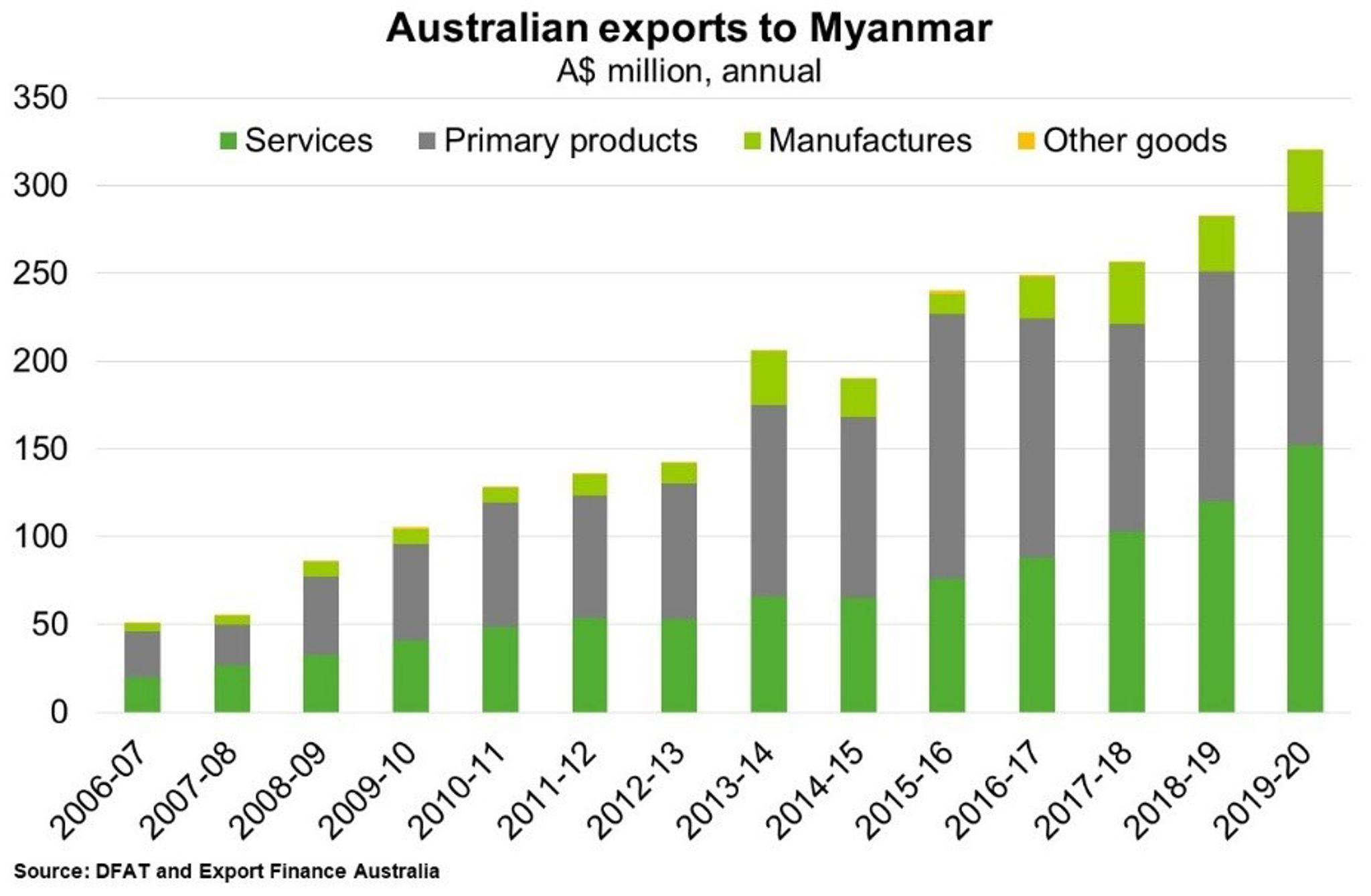Myanmar—Political upheaval weakens economic prospects
Myanmar’s military seized power and imposed a state of emergency on February 1, detaining State Counsellor Aung San Suu Kyi and other senior leaders. The military alleges fraud in the November 2020 election which returned the National League for Democracy (NLD) to power with a landslide victory, despite the election commission and international observers deeming the poll free and fair. Nationwide protests and worker strikes have grown rapidly; the ensuing violent crackdown has roiled the country and led to international sanctions targeting the military.
The scale and momentum of anti-military protests suggests a potentially long period of political instability that is likely to derail Myanmar’s substantial economic prospects. Mass factory closures and road blocks are causing shortages of raw materials and worsening supply chain disruptions. In the garment sector (30% of total exports), production levels have fallen dramatically given large-scale worker abstentions and withdrawals by foreign investors. Heightened safety, ethical and reputational risks will weigh on foreign investor confidence and intensify divestitures. Already, Japan’s Kirin Beverages, Singapore’s TDS Consulting, and Thailand’s Amata Corporation have withdrawn from investments. Foreign commercial demand is also likely to fall on reputational grounds; for instance, the Benetton Group said on March 12 that it would halt all new orders from Myanmar. Further, growing fatalities could jeopardise critical trade concessions granted by the European Union, while COVID-19 case numbers could rise given the proximity of people in mass protests.
Strong growth in Australian exports to Myanmar (Chart), concentrated in services and wheat, could be difficult to maintain given a potentially prolonged period of political, social and economic upheaval.

